#marya morevna
Text

Ivan Bilibin's illustration for russian tale "Marya Morevna".
#ivan bilibin#иван билибин#marya morevna#марья моревна#russian#slavic#russian tales#русские сказки#russian illustration#russian art#tale illustration#illustration
933 notes
·
View notes
Text
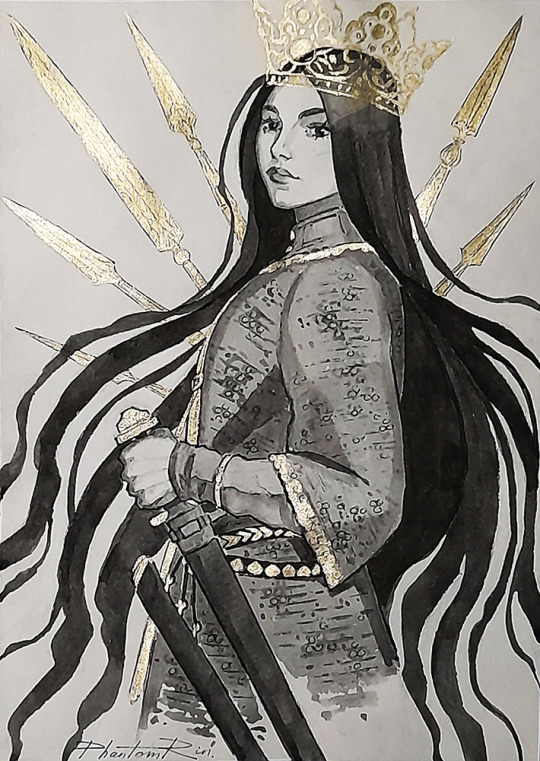
Inktober 2023
Day 21 - Marya Morevna
Ivan-tsarevich asks, "If there's a man alive, answer me! Who defeated this great army?"
A man alive answers, "This great army was defeated by Marya Morevna, the fair princess."
("Marya Morevna". A.N. Afanasiev's collection of Russian folk tales.)
New stuff available to my Boosty subscribers ;)
https://boosty.to/phantomrin
#inktober#inktober 2023#Marya Morevna#folklore#folk tales#warrior#princess#art#illustration#traditional art#PhantomRin
261 notes
·
View notes
Text
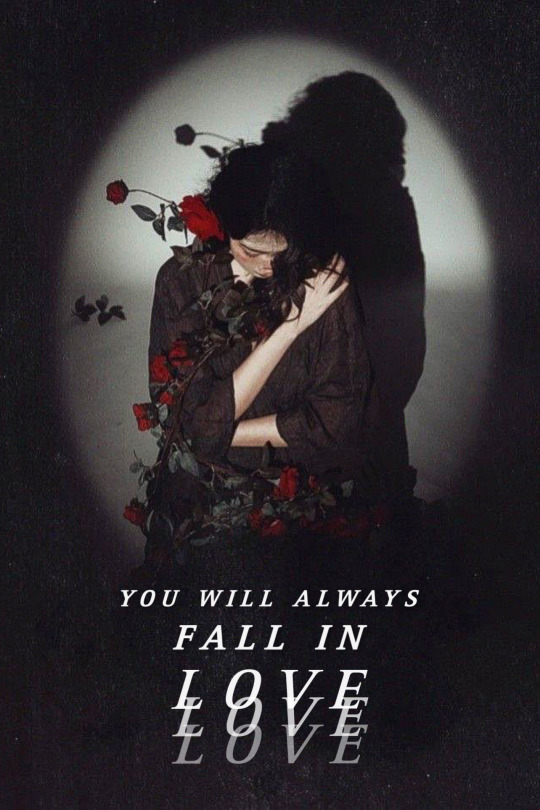

DEATHLESS, CATHERYNNE M. VALENTE
‘You will always fall in love, and it will always be like having your throat cut’
#deathless#deathless catherynne m valente#catherynne m. valente#koschei the deathless#koschei#marya morevna#deathlessedit#lit edit#litedit#book edit#bookedit#literature#quotes#fantasy#russian folklore#books#character edit#fiction#literature edit
224 notes
·
View notes
Photo
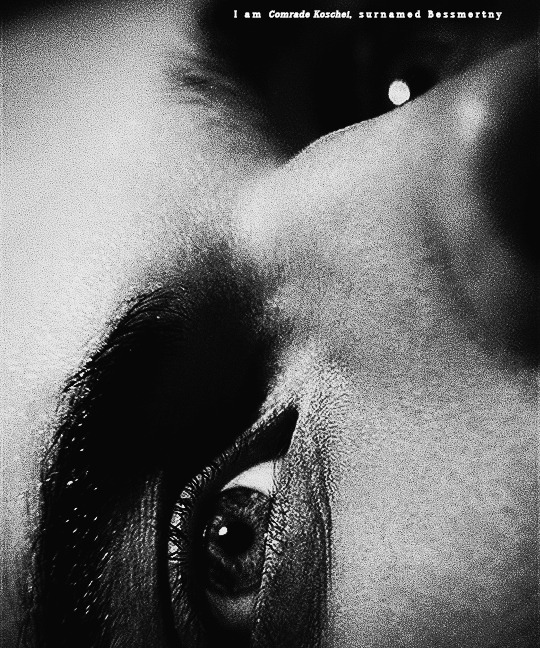
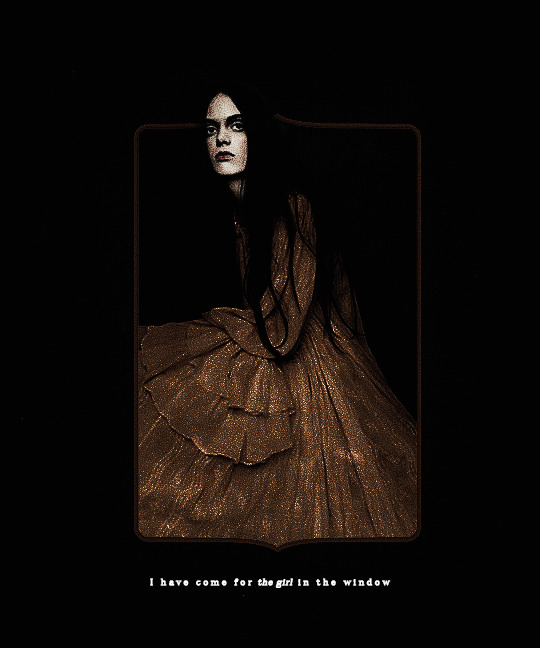
There Tsar Koschei,
he wastes away,
poring over his pale gold.
#deathlessedit#marya morevna#deathless#koschei#litedit#litdaily#literature#i accidentally deleted my og post :|#*
281 notes
·
View notes
Text

#marya morevna#russian fairytale#Alexander Afanasyev#19th century#literature#history#fairy tale#poll#tumblr polls
30 notes
·
View notes
Photo
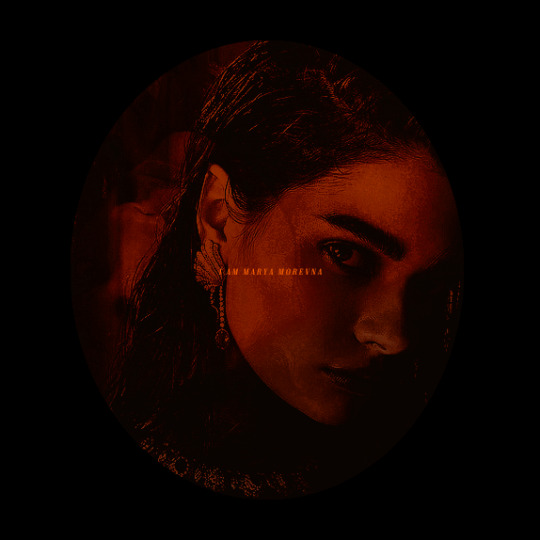
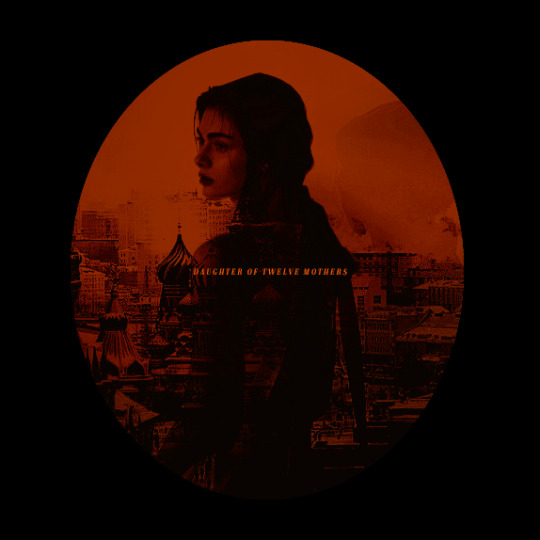
and i will not be denied.
#deathless#deathlessedit#marya morevna#litedit#litsociety#booksociety#storyseekers#fictionnet#fictiondaily#chaptersnet#litcreators#our edits
218 notes
·
View notes
Text

"Marya Morevna and Ivan Tsarevich"(1925)
Boris Zworykin (1872-1942)
#Борис Зворыкин#Boris Zworykin#русский художник#russian artist#slavic#русская культура#russian culture#Иван-Царевич#Ivan Tsarevich#русские сказки#russian fairytales#Марья Моревна#Marya Morevna#русский фольклор#russian folklore#русское искусство#russian art#slavic folklore#russian#1920s#1925#20s
63 notes
·
View notes
Text
they say “I love you, i care about you,” but when Marya Morevna had to burn her beloved books for heat, Ivan Nikolayevich had said, “I will remember these books for you. I will recite them to you whenever you want to read.”
29 notes
·
View notes
Text
Deathless Thoughts:
I only read this book in full once in 2017 and have only really paged through it a lot since. I definitely found it much more deliberate and thematically coherent this time around. I remember initially feeling like the surrealism and constant jumps ahead were disjointed but it reads very cohesively to me now. I’m very curious if that will continue past the latter 50% which I haven’t reread yet. I remember starkly disliking that portion and I have no idea if I’ll feel similarly this time around— because I already enjoyed the second act much more on reread and acknowledged its purpose, when up until now I did not lol
My initial thoughts were that the fantasy elements were too surreal to care about and that the relationship was too much of a nothing, with too little not unpleasant screen time to justify its centrality to the plot. But having read more classic surrealist Russian lit has familiarized me to the former and makes me actually understand what it’s going for. And for the latter I think I’m just more onboard with unpleasantness and abuse being the point. So currently, my perspective is almost wholly positive.
I enjoy the book’s use of its subject material— fairytales set in actual history— as many many metaphors. First folktales and fantasy specifically in the Soviet era, so rife with censorship, as a vehicle for allegory, their use and importance in literature itself being a motif. Then the metaphor for inexorable class hierarchies and unchangeable power structures before and after the revolution, the way only the branding changed, but the power structures remained. And also, most pervasively, as a way to examine gender roles and gendered loss of agency; the politics of a marriage.
I really liked the way the novel built up Koschei and how everything is about Marya’s relationship with Koschei (her relationship with agency and the lack thereof) even when he’s fairly infrequently on screen. From her sister’s bird husbands in the opening, and child Marya’s musing on the potential transformative nature of marriage— but also the inherently unequal power dynamic and resolving that she will do/be better because she knows more than they did. To the metaphor of her thinking that a secret will treat her well and then later the line where the personified secret is then likened to a husband who will be her ruin. Even that when Koschei finally shows up to take her away it’s compared to being taken away by the revolutionary government/the police.
Marya is herself highlighted for her knowledge and her desire for it. Specifically the ability to see discrepancies in the stories she is told whether that is the magical or ideological and political. The sisters in the opening marry into seemingly static unmoving snapshots of history. Meanwhile Marya’s singled out in her precociousness and open admittance of there being anything completely beyond the ideologies presented by each suitor in his human form [the power structure of the Tsarist state, and the Soviet Union]. She’s defined by wanting to see beyond dichotomies and limited scopes of propaganda. She sees it as a skill, and it is, but it’s also something that singles her out for misery, both by her peers (the scarf incident) and by the likes of Koschei who is specifically drawn to willfulness and a lack of adherence to a particular role with the intent of breaking that will.
The entire seduction segment that is turning all the food and her illness into an erotic power exchange is also just explicitly about breaking her will, and fostering perfect obedience and dependence on him. It’s also really interesting that, in going with him, she does somewhat lucidly give up and trade away her agency/ability to dictate a story/her own perspective in exchange for being physically well cared for. (But then even that is very thorny and with many strings attached)
So by part two, she is stuck in the dichotomy of “who is to rule” and either she can be a Yelena/Vasalisa or a soon-to-be Baba Yaga. Yet, either way, she is never good enough and it is still inevitably an exploitative and draining situation.
Marya being successful in her willingness to do degrading and cruel things to earn Baba Yaga’s blessing and Koschei’s favor being punctuated by all her friends— who without which she would never have succeeded at all— dying horribly illustrates that so well. In her success she is only further isolated. She will never repay their help, because being Tsaritsa of Buyan, and having any sort of power, is inherently antithetical to that.
The emphasis on Lebedeva’s girlboss magic makeup and the passage about Marya being told that girls must care only for vapid, pretty things, among other moments, might feel extremely dated. But I do think they’re intended to be employed in a way where traditional femininity presents a sort of deliberate and acknowledged safety? And it goes hand in hand with Marya, while never choosing to be a “Yelena” in traditional soft femininity, does end up choosing to try to leverage soft power and soft manipulation within deliberately gendered terms fairly often. But again it’s just presented from a very dated and particular context.
So far, the sheer dedication of the book to being an explicit Bluebeard tale and a story about abuse, and how there is no winning in that sort of relationship has been very fun for me.
I also enjoyed Koschei outright lying about the Yelenas and Vasalisas— and then later about the location of his death. I think that’s a character type you usually expect to deceive via omission but, no, he just outright lies a lot.
Another example is that Widow Likho’s book makes it clear that humans best enter into Buyan when ill, and meanwhile everything Koschei does is of course explicitly a repetition of previous stories. So it’s practically confirmed that he had taken every Yelena etc on that same long trip and made them ill on purpose. Even though in the moment he claims to be surprised by it, and spontaneous in caring for her through her illness.
Or the suggestion that he found a reason to put all the other girls in the stable when they got to Buyan as punishment for disobeying him. That the point is the punishment and breaking of the will rather than there being any sort of standard the bride could realistically meet where he would be happy with her and welcome her to her new home without that initial humiliation and fear.
It’s also incredibly funny and refreshing that this book buys into Koschei’s nonsense way less than any of its subsequent imitators. (The Grisha trilogy included!) I enjoyed Baba Yaga being like “Why is everything black, stop being dramatic 🙄”
He’s barely present in the book at all. His page count is truly negligible! And it’s great!
Like I mention earlier, that was actually something I was annoyed by on my first read, the relationship just seemed fairly thin, even though the snapshots of it that we get are fascinating. But after being inundated with so many books worshipping the ground love interests like him stand on, I love how much he doesn’t fucking matter and how little page time he has. How that itself allows Marya’s emotions and conflicted feelings to remain central. The narrative doesn’t care about him, it’s only what impact he has on her that’s relevant.
Anyway somewhat superficial but I really enjoy the goth love interest being the Tsar of Life, because authors typically go a more obvious and melodramatic route. Despite all of the goth mystique, him not being associated with death, darkness, night, etc was refreshing. But also I do generally just find the concept of life being equated with the lurid and demanding, the parasitical, something that is always in a personal sense at war with death— aka the mention of him always looking sickly or feeling skeletal initially when he kisses Marya— a compelling one. It’s death and the maiden wrapped up in a single person essentially.
Anyway I also appreciated the parallel of the Yelenas being trapped in eternity weaving soldiers while Marya’s first thought upon seeing Koschei is that if she had knitted herself a perfect lover he would look like that. There is the constant underpinning of Marya being wholly separate from them, the question of whether she is greater or more horrible than them, but at the heart of it she’s really not. She’s just another victim in a long string of them.
#cautiously hopeful that I’ll like the second half just as much despite my opinions on first read#deathless#koschei the deathless#marya morevna#book talk#i ramble sometimes#*writer’s cap*
20 notes
·
View notes
Text
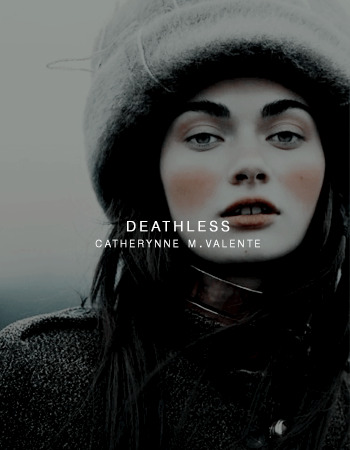
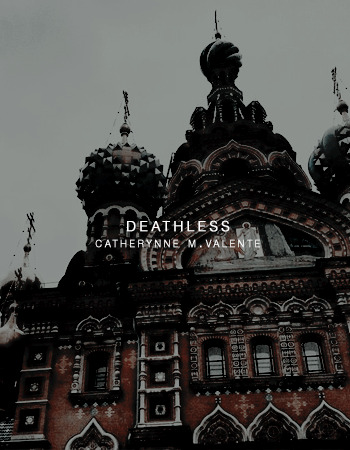
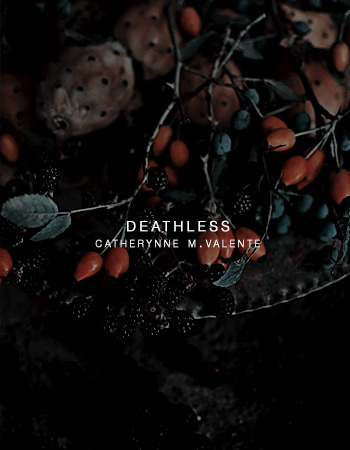
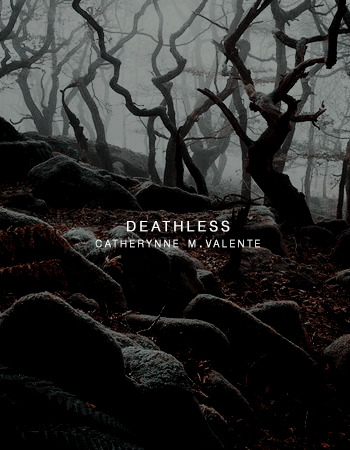
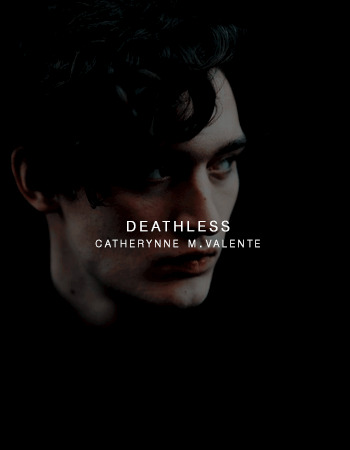
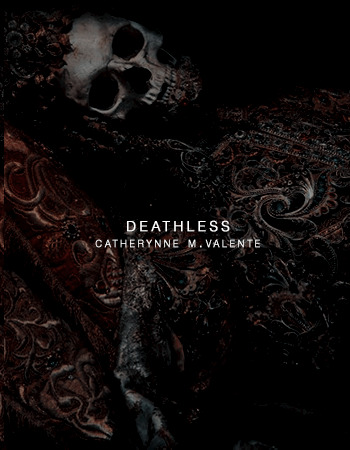
book aesthetics ❧ Deathless
“You are going to break your promise. I understand. And I hold my hands over the ears of my heart, so that I will not hate you.”
388 notes
·
View notes
Text

Tamara Shevaryova's illustration for russian tale "Marya Morevna".
Koshchei the Deathless is an archetypal male antagonist in Russian folklore.
The most common feature of tales involving Koschei is a spell which prevents him from being killed. He hides "his death" inside nested objects to protect it. For example, his death may be hidden in a needle that is hidden inside an egg, the egg is in a duck, the duck is in a hare, the hare is in a chest, the chest is buried or chained up on a far island. Usually he takes the role of a malevolent rival figure, who competes for (or entraps) a male hero's love interest.
The origin of the tales is unknown. The archetype may contain elements derived from the 12th-century pagan Cuman-Kipchak (Polovtsian) leader Khan Konchak, who is recorded in The Tale of Igor's Campaign; over time a balanced view of the non-Christian Cuman Khan may have been distorted or caricatured by Christian Slavic writers.
#tamara shevaryova#тамара шеварева#marya morevna#марья моревна#koschei the deathless#кощей бессмертный#russian#slavic#russian tales#русские сказки#russian illustration#illustration#tale illustration
423 notes
·
View notes
Text

Inktober 2023
Day 26 - Raven
"...a thunder rumbled, the ceiling cleaved and a raven flew in;
the raven struck the floor and turned into a handsome lad: the previous two were fair but this one was even more so."
("Marya Morevna". A.N. Afanasiev's collection of Russian folk tales.)
#inktober#inktober 2023#Raven#folklore#folk tales#Marya Morevna#art#illustration#traditional art#PhantomRin
327 notes
·
View notes
Text
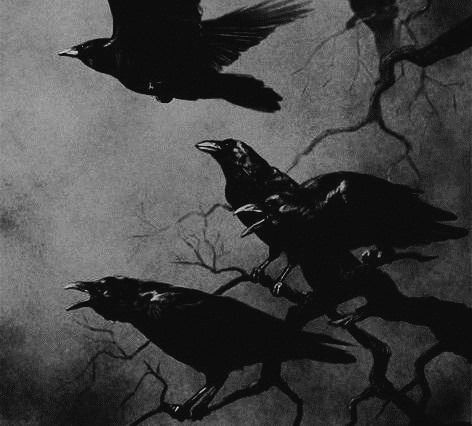



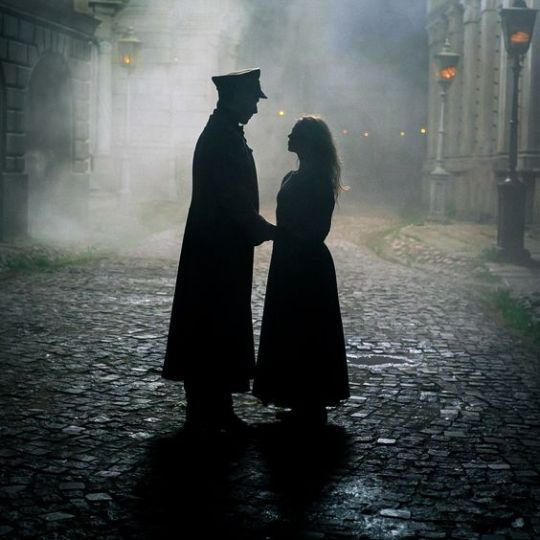
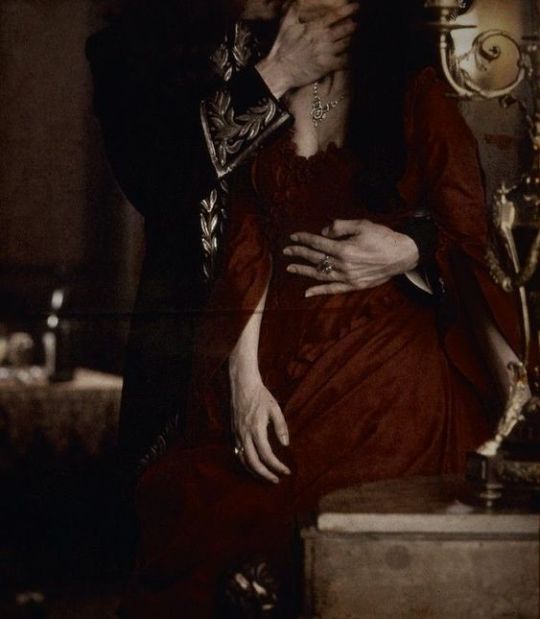
Best Books Read in 2023
Deathless - Catherynne M. Valente
“Walk the same tale over and over, until you wear a groove in the world, until even if you vanished, the tale would keep turning, keep playing, like a phonograph, and you'd have to get up again, even with a bullet through your eye, to play your part and say your lines.”
10 notes
·
View notes
Text

did this for a "draw in your style" thingy on Instagram 😊
It's a webcomic called Marya Morevna, inspired by Slavic and Nordic folklore
12 notes
·
View notes
Photo

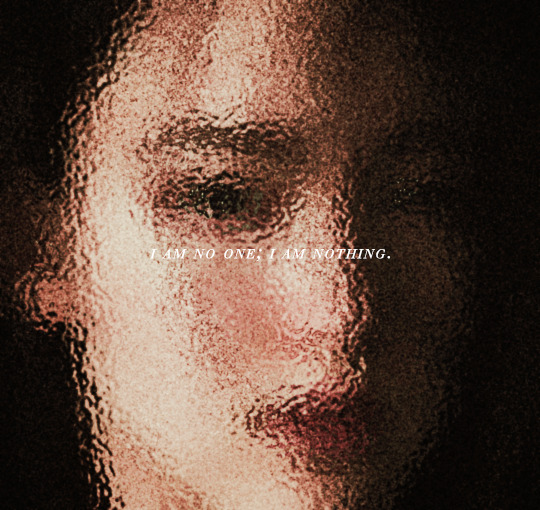
I am a blank paper on which you and your magic wrote a girl.
372 notes
·
View notes
Text
Oh to be a girl at the window waiting for my future husband, who's still a bird watching me from afar, to turn into a man and whisk me away to a magical land.
99 notes
·
View notes